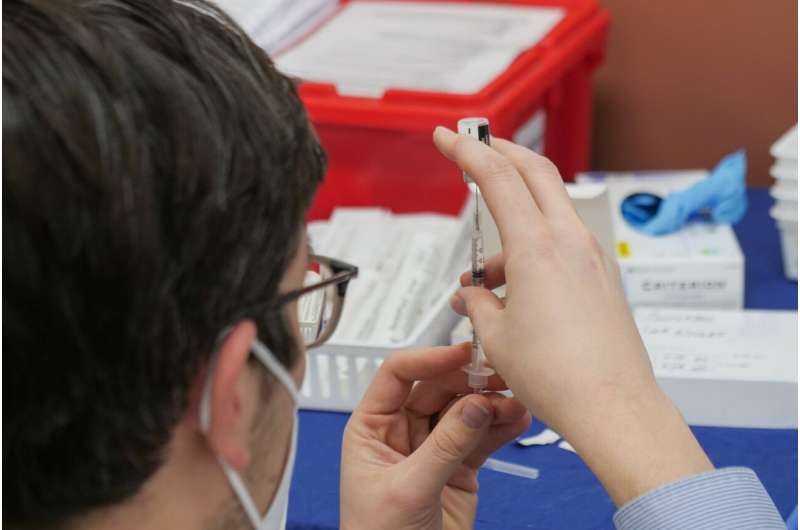'Vaccine nationalism' is a threat to equitable access and herd immunity

While the U.S. has begun to vaccinate millions of Americans each day, COVID-19 vaccine supplies around the world remain scarce. Experts estimate that 80 percent of people in low-resource countries will not receive a vaccine in 2021. At the time of the paper's writing, the global vaccination rate was 6.7 million doses per day—a rate at which it would take 4.6 years to achieve global herd immunity. In a new Perspective piece in the New England Journal of Medicine, Katz and colleagues highlight the need to treat essential medical services as public goods, rather than market commodities. To truly protect U.S. residents and their neighbors, they urge the federal government to reinforce global vaccine distribution efforts.
"The early competitive procurement of vaccines by the United States and purchases by other high-resource countries have fed a widespread assumption that each country will be solely responsible for its own population," the authors write. "Such vaccine nationalism perpetuates the long history of powerful countries securing vaccines and therapeutics at the expense of less-wealthy countries; it is short-sighted, ineffective, and deadly."
Through the COVID-19 Vaccines Global Access (COVAX) program, the U.S. and the G7 nations have committed to vaccinating at least 20 percent of the populations of participating low- and middle-income countries by the end of 2021. But this falls far below the broader goal of achieving herd immunity by vaccinating at least 70 to 85 percent of the population and substantially increases the likelihood that new viral variants will emerge.
Drawing upon lessons learned from the HIV pandemic, when most low-resource countries could not access lifesaving therapies, the authors argue that the government should invest in what some experts are calling the President's Emergency Plan for Vaccine Access and Relief (PEPVAR), a spin-off of the 2003 President's Emergency Plan for AIDS Relief (PEPFAR). This latter plan was founded to deliver antiretroviral therapies globally, and a program like PEPVAR could draw upon pre-existing strategies to scale up the delivery of vaccines beyond COVAX's commitments. Like the plan for AIDS relief, it could leverage partnerships with governmental and multilateral organizations to improve vaccine access. Equally important is ensuring vaccine supply, and the authors posit that the World Trade Organization may be justified in temporarily waiving pharmaceutical patent protections to substantially reduce the costs of manufacturing vaccines.
"The United States has an unusual and urgent opportunity to ensure that COVID-19 vaccines are available to all," the authors write. "By investing in multilateral partnerships with a sense of shared commitment and employing a global allocation strategy that increases supply and manufacturing, we can meet the urgent challenge of COVID-19, while creating sustainable infrastructures and health systems for the future."
More information: Ingrid T. Katz et al, From Vaccine Nationalism to Vaccine Equity—Finding a Path Forward, New England Journal of Medicine (2021). DOI: 10.1056/NEJMp2103614




















